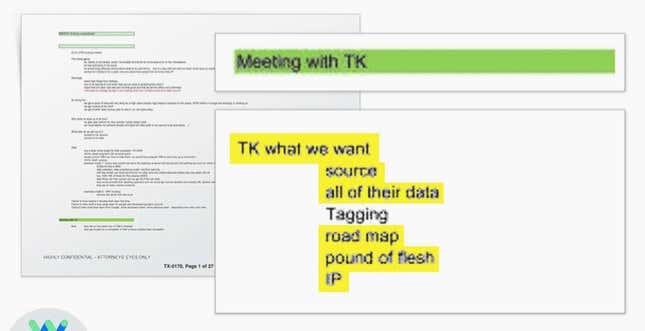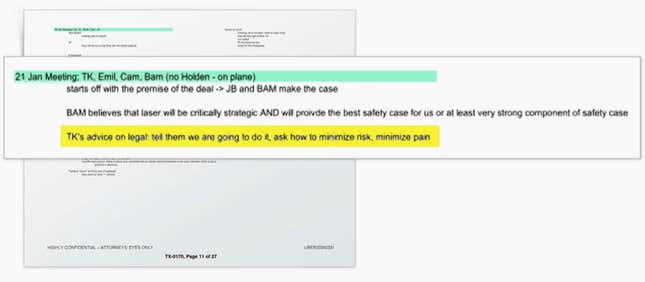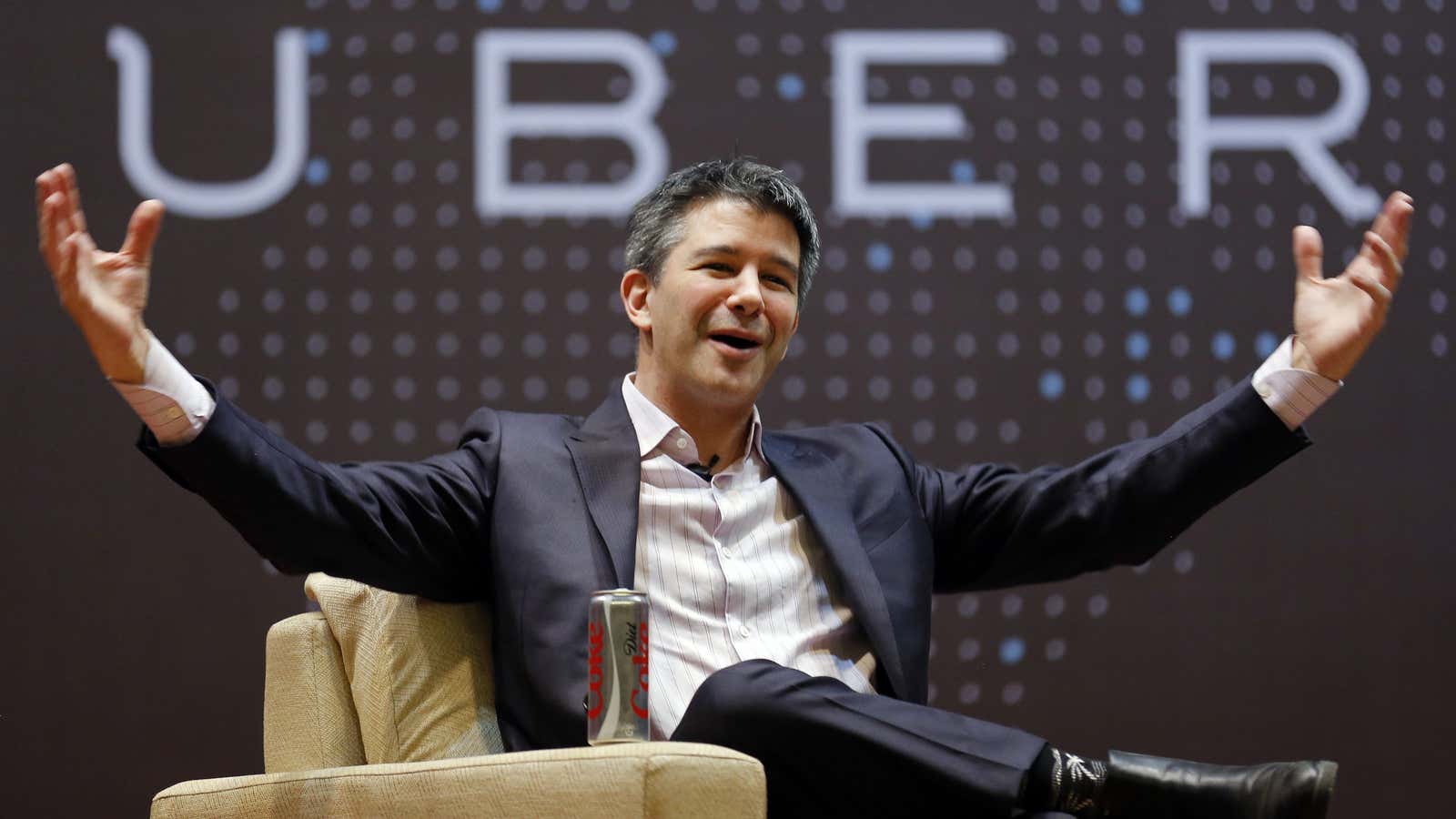Hypothetically speaking, there are certain things that might not look great for a chief executive to have said when things end up in court.
For example, regarding a potential deal, it might not look great for the CEO to have said that the legal team should be told, “we are going to do it, ask them how to minimize risk, minimize pain.” It also might not look great if the list of things the CEO wanted from that deal included a “pound of flesh.” If it didn’t end well in Shakespeare, it probably doesn’t bode well for real life—or before a federal-court jury.
Oh, but why deal in hypotheticals? Here are notes taken by John Bares, former director of Uber’s driverless car center in Pittsburgh, on a December 2015 meeting with Uber co-founder and then chief executive Travis Kalanick:

There it is! A pound of flesh! These are things that Kalanick (abbreviated in the notes as “TK”) wants to get from buying a yet-to-be-named company, “Newco.”
Here are more of Bares’ notes, this time from a meeting in January 2016:

“Newco,” in this case, is Otto, the driverless trucking startup that almost no one had heard of when Uber paid $680 million for it in August 2016. Otto was started by Anthony Levandowski, a former star engineer at Waymo, Google’s maker of self-driving cars. The deal landed Uber in a lot of trouble last year when Waymo sued Uber, alleging it had wooed Levandowski and purchased his barely established company for the thinly veiled purpose of stealing Waymo’s trade secrets.
The suit is being tried in federal court in San Francisco this week. Waymo is trying to prove not only that Levandowski stole its intellectual property (he allegedly downloaded more than 14,000 files from Waymo servers) but that he took that information to Uber, which unfairly incorporated Waymo’s hard-earned design secrets into its own technology. Uber must prove that it didn’t do any of this, and that if Levandowski acted badly, it was on his own, and not in collusion with anyone at Uber. (He is not named as a defendant in the suit.)
Now, back to the emails Waymo showed in court yesterday (Feb. 5). Uber would prefer not to focus on these messages, which it considers a flashy sideshow to dry-if-important technical details about whether Waymo’s trade secrets are in fact secrets and, if so, whether they were incorporated into Uber technology.
Legal merits aside, however, there are certainly things we can learn from the messages Kalanick and his team exchanged over the Otto deal—namely, not to detail thoughts and plans that may look shady in your texts, notes, and emails.
Here, for example, is a text Levandowski sent to Kalanick in February 2016, two weeks after he unexpectedly quit Waymo and formed Otto: “I just see this as a race and we need to win, second place is first looser [sic].” Levandowski followed this with: “We do need to think through the strategy to take all the shortcuts we can find.”
Here are more phrases—stereotypical startup bro stuff—attributed in notes to Kalanick:
- “This is all about winning”
- “To win we have to cross the finish line first, losing is not an option”
And notes from Bares on a Kalanick “redirect” of “top priorities” in April 2016, at which point Uber was discussing a potential Otto acquisition at a price of around $590 million, using the code name “Project Zing”:
- “Cheat codes. Find them. Use them.”
- “the golden time is over. It is war time”
- “going slower is NOT an option anymore”
- “In each area what we do we need to do to win”
- “Reality that matters is catching up. This is the only reality that matters.”
Are these messages legally incriminating? Not necessarily. Do they look all sorts of not great? Definitely. Shady-sounding schemes are not for emails, or texts, or internal memos of any sort.
That, presumably, is exactly why Waymo brought these up.
